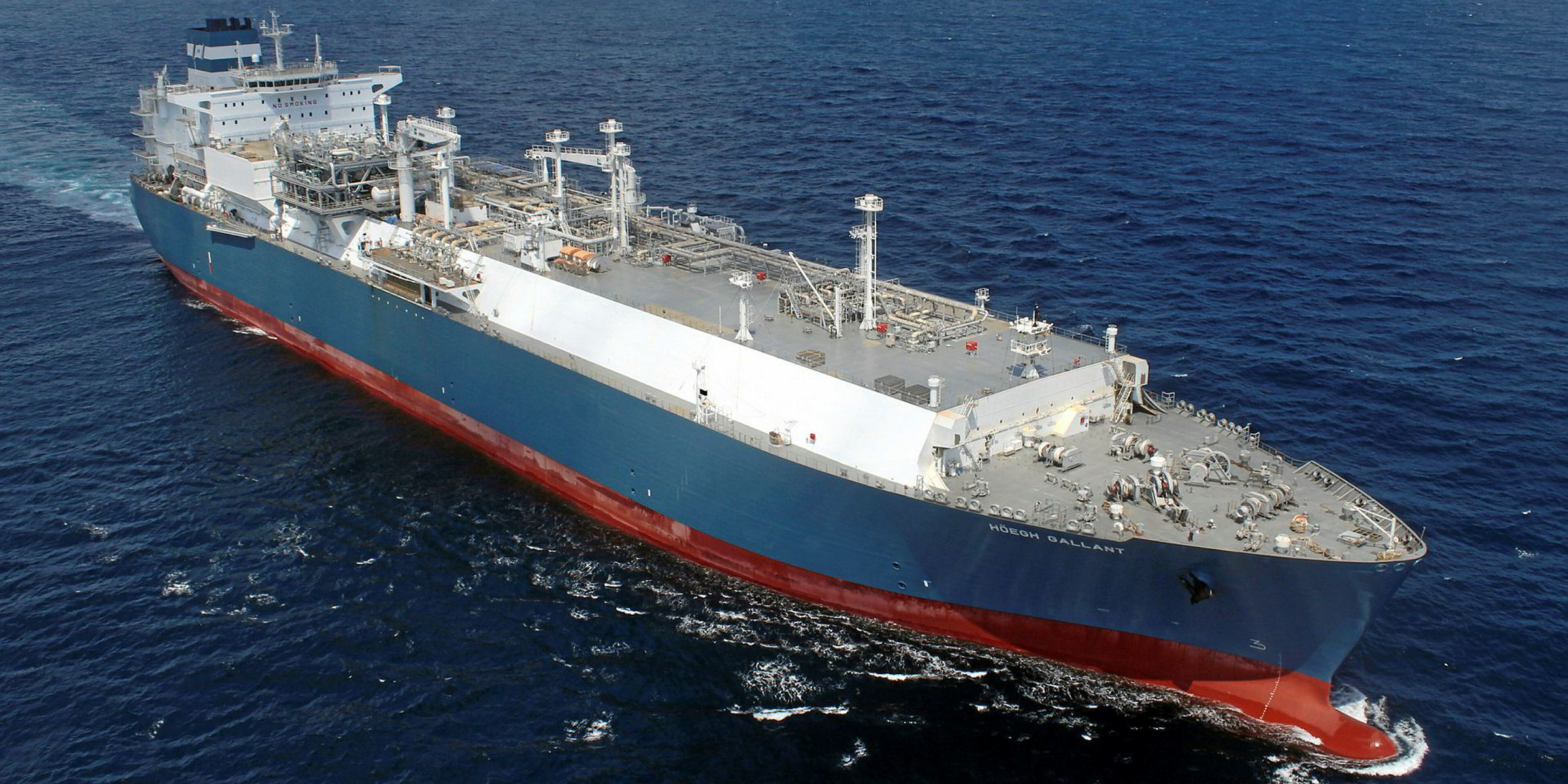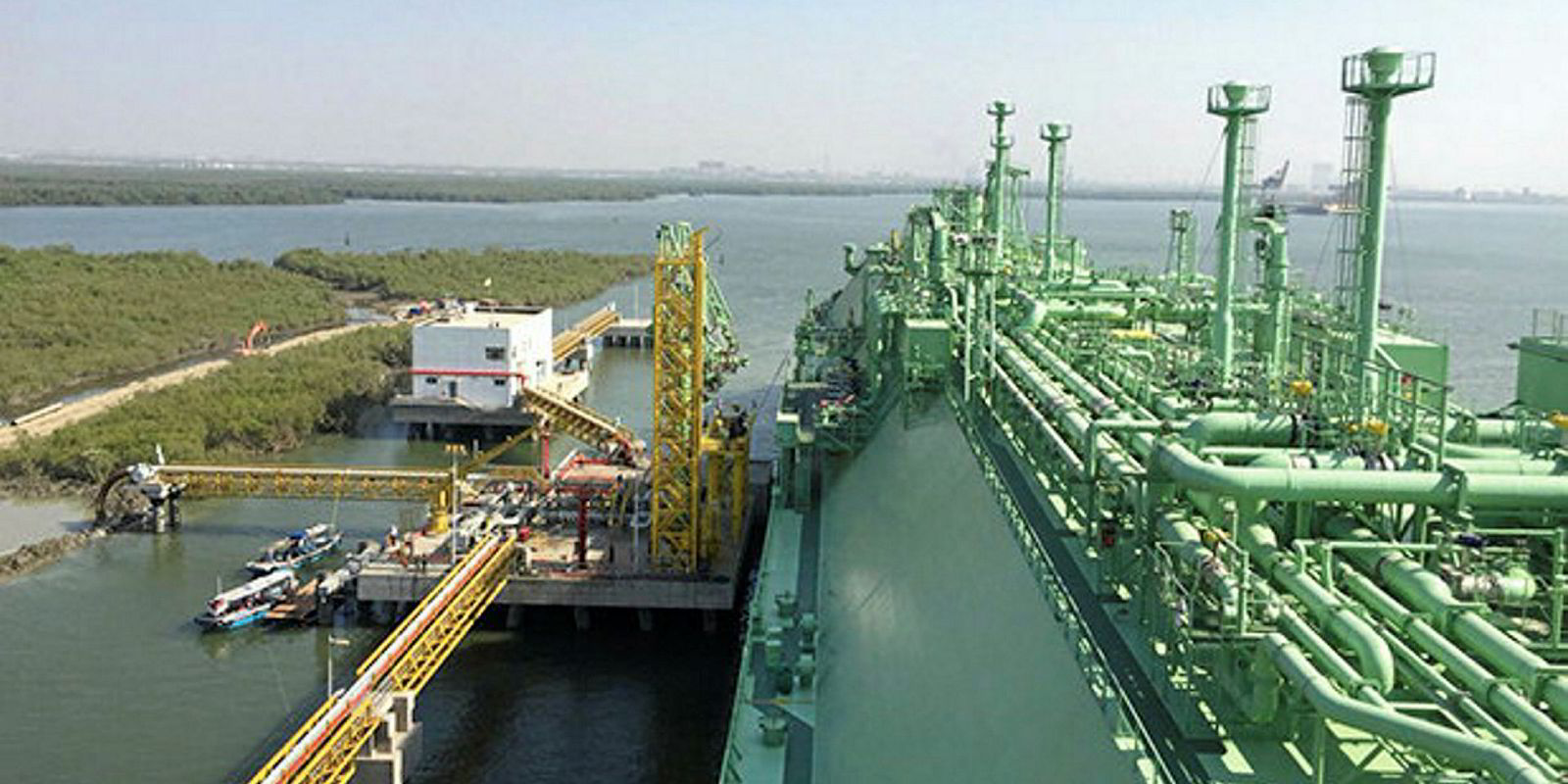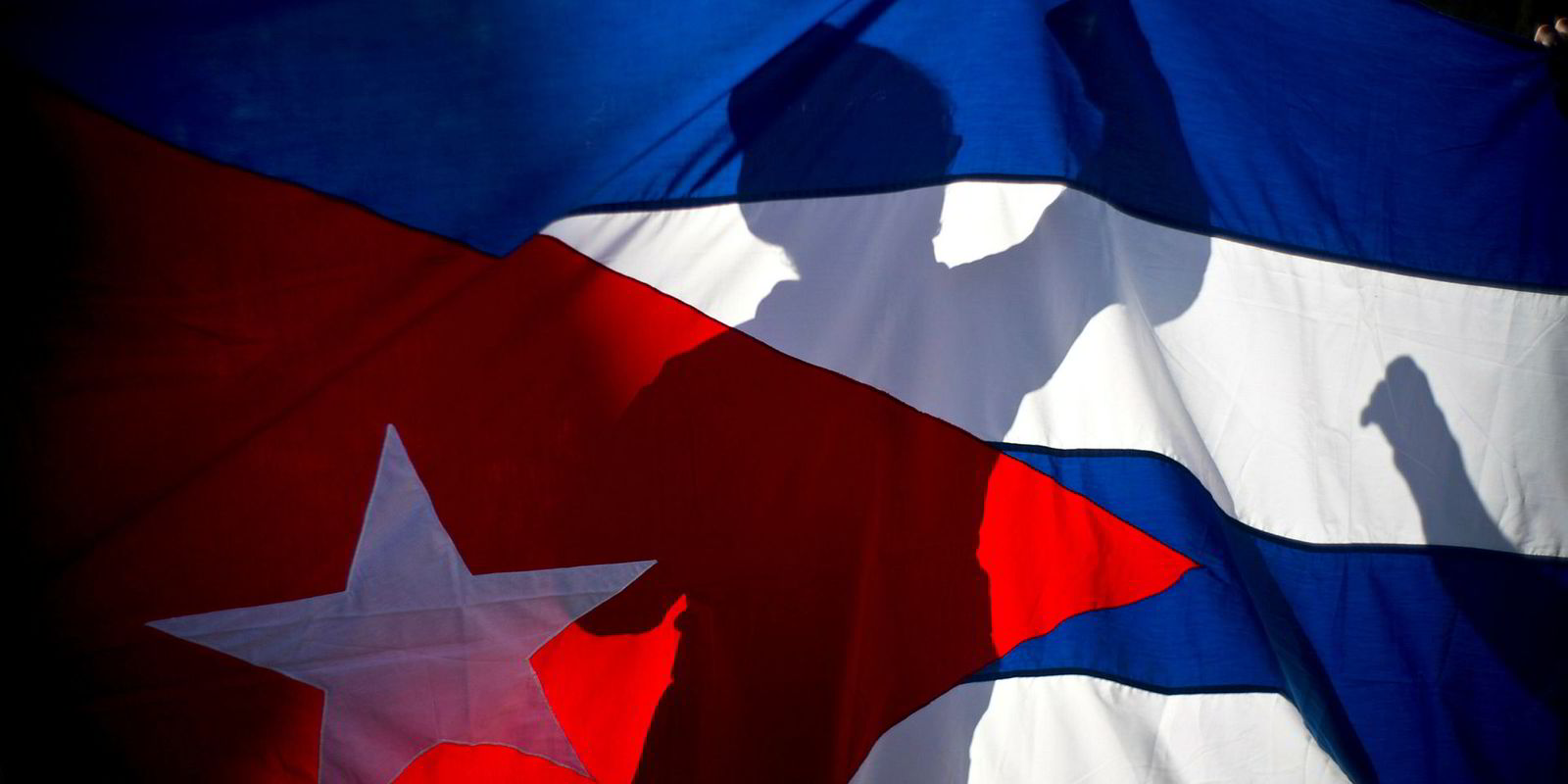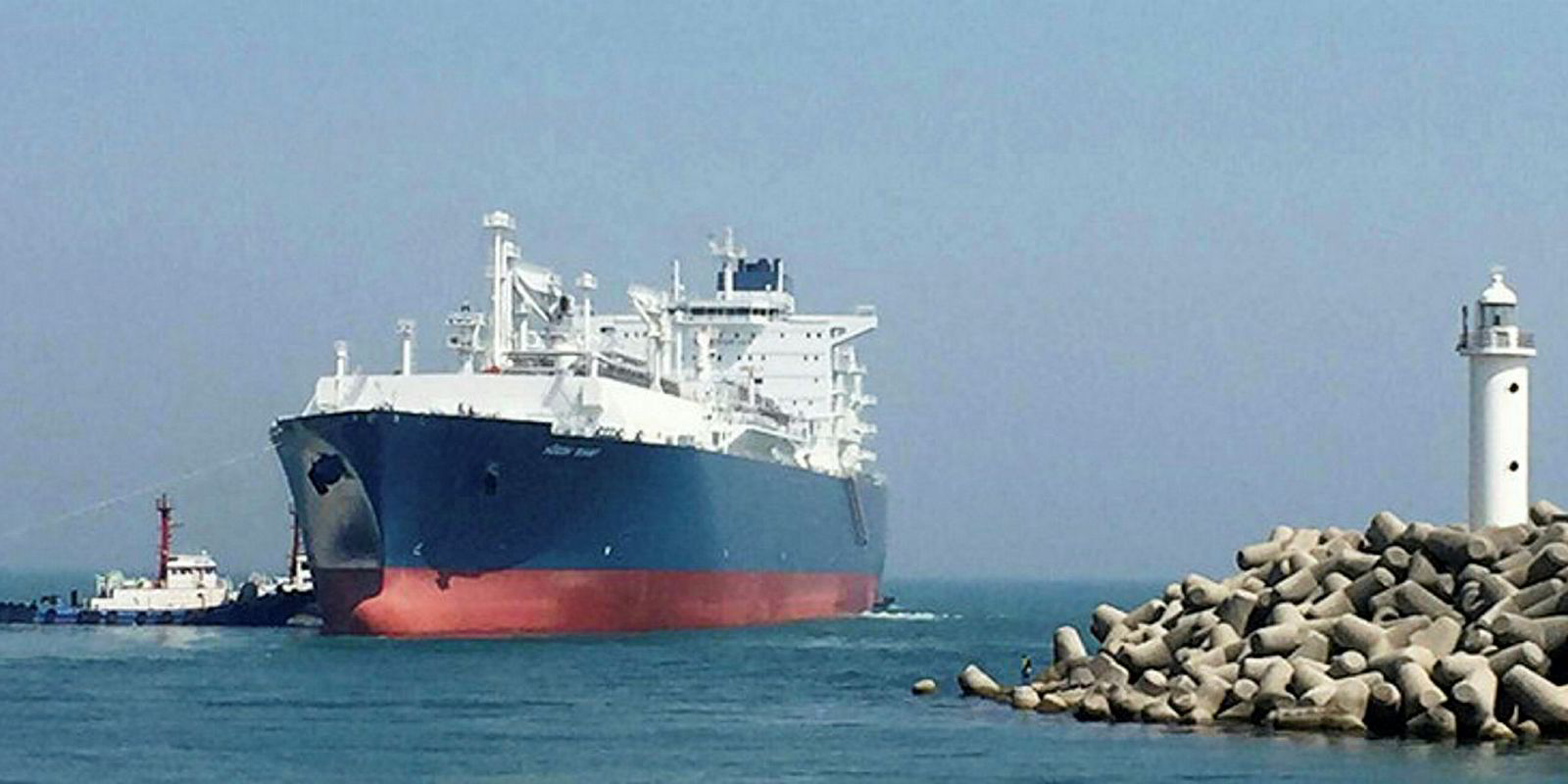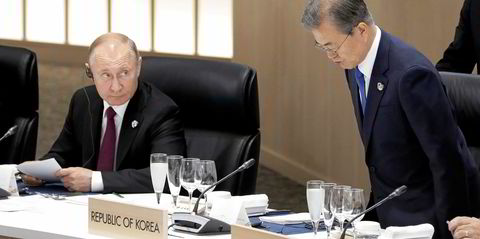Eight floating storage and regasification units are currently listed as without firm business — twice the number recorded 12 months ago.
Figures compiled by TradeWinds with input from shipbrokers show six of these are newbuildings and two are existing FSRUs.
At the end of the first quarter of last year, TradeWinds recorded that four FSRUs were idle and not being used as regasification units.
On top of the eight apparently uncommitted units, two others are expected to be redelivered from contracts this year in advance of when they were scheduled to return to the market.
At least one other FSRU is deployed on a multi-year time charter but is currently working as a trading vessel.
Consultants said there are no shortages of new projects seeking units — in the past week TradeWinds has reported on kick-off searches for FSRUs to serve new projects in Cuba and Sudan.
They commented that the technology and concept arenow widely understood and can offer quick start-up solutions for countries looking to fast-track gas imports, but developers are requiring more of companies that want to participate.
Others added that even if there is a desire to proceed with a project, the bigger picture can often complicate projects, with finance needing to be arranged, shareholders with differing interests aligned and political interests within the importing country often a deciding factor.
As a result, some planned projects have stalled or the backers have walked away — as in Ghana, Chile and Pakistan — leaving the regasification units allocated to them looking for alternative employment.
“The FSRU is easily done,” one senior official at an existing floating regasification facility told TradeWinds, but other aspects, such as the location of the port facility, finding a safe berth and matching the pipeline capacity between the unit and the onshore system can require more taxing work.
“That is the challenge for the Hoeghs, the Golars and the Excelerates,” he said, referencing the three companies that have been at the forefront of developing floating regas.
In addition, daily charter rates and term hire periods typically offered for FSRUs have decreased as the sector has matured and would-be LNG importers have become more informed about their options and confident with the technology.
Charter rates
Brokers said that whereas FSRU charter rates had previously been well established in the six-figure-plus range, they now tend to come in around or slightly below $100,000 per day.
Some long-term contracts are still on offer, such as those recently seen for Hong Kong’s first unit and the ongoing negotiations over a regas unit for Croatia. But shorter deals of seven, five and three years have been new developments.
Uncommitted FSRUs
| Owner | Vessel/Hull No | Status | Size (cbm) | Delivery/built |
| Hoegh LNG | Hyundai Hull No 2909 | Under construction | 170,000 | 2018 |
| Hoegh LNG | Samsung Hull No 2220 | Under construction | 170,000 | 2019 |
| BW Gas | BW Courage | Under construction | 173,400 | 2019 |
| Maran Gas Maritime | DSME Hull No 2477 | Under construction | 170,000 | 2020 |
| Dynagas | Hudong-Zhonghua N/A | Under construction | 174,000 | 2021 |
| Dynagas | Hudong-Zhonghua N/A | Under construction | 174,000 | 2021 |
| Golar LNG | Golar Tundra | Trading spot | 170,000 | 2015 |
| Golar LNG | Golar Spirit | Laid up | 129,000 | 1981 |
